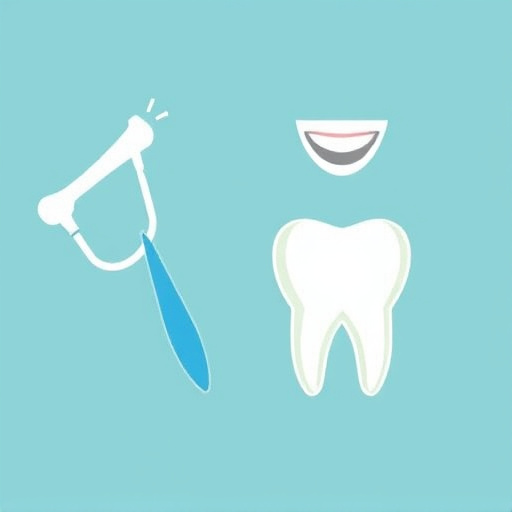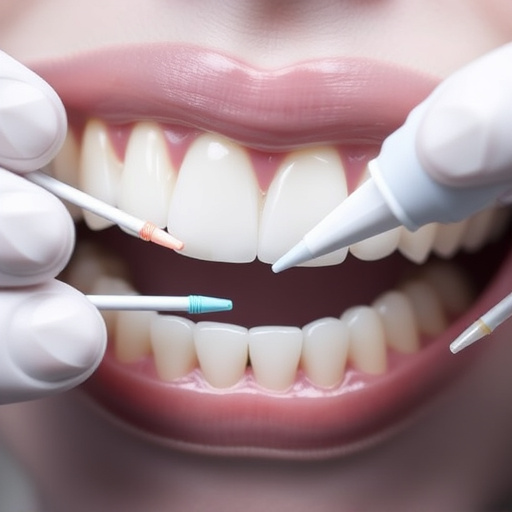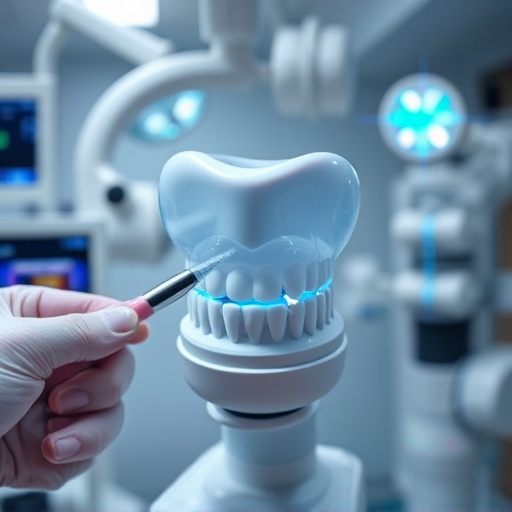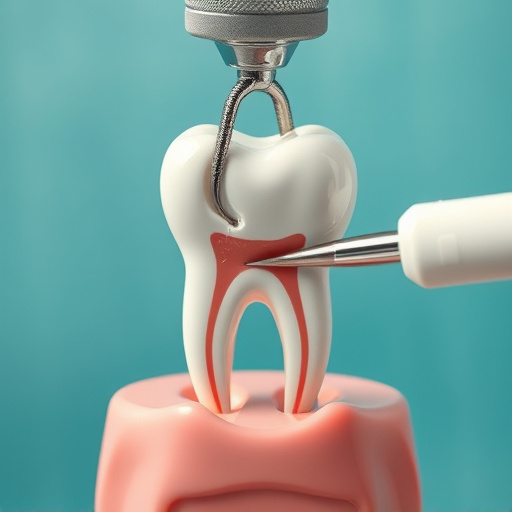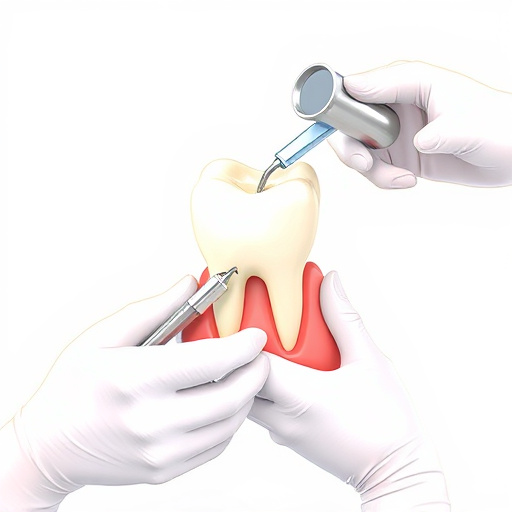Antibiotic therapy treatment is a powerful tool for combating bacterial infections and reducing recurrence. Key aspects include accurate diagnosis, selecting appropriate antibiotics, adhering to dosage, minimizing overuse, and maintaining oral hygiene. In particular, completing full antibiotic courses after tooth extractions or cleanings is vital to prevent resistance. Regular brushing, flossing, and dental check-ups, in conjunction with prescribed therapy, significantly lower the risk of recurrent mouth infections, preserving dental structures and reducing future interventions.
Antibiotic therapy treatment is a powerful tool in combating bacterial infections, offering both curative and preventive benefits. This article delves into the effectiveness of antibiotics in minimizing recurrent infections, exploring key strategies for successful treatment. We examine how consistent antibiotic use translates to long-term advantages, providing insights that underscore the importance of proper infection management. By understanding these aspects, individuals can make informed decisions regarding antibiotic therapy treatment, fostering better health outcomes and reducing the risk of future complications.
- Understanding Antibiotic Therapy Treatment Effectiveness
- Minimizing Risk: Strategies for Recurrent Infection Prevention
- Long-term Benefits of Consistent Antibiotic Use
Understanding Antibiotic Therapy Treatment Effectiveness

Antibiotic therapy treatment is a highly effective method to combat bacterial infections and minimize their recurrence. When used appropriately, antibiotics can significantly reduce the risk of future infections by eliminating or suppressing harmful bacteria in the body. Understanding how this therapy works is crucial for both patients and healthcare professionals.
Effective antibiotic therapy relies on several factors, including the correct diagnosis of the infection, choosing the appropriate medication from a range of available antibiotics, and ensuring adherence to the prescribed dosage and duration. Additionally, it’s important not to over-rely on antibiotics for all infections, as this can lead to bacterial resistance. Regular dental cleanings and teeth cleaning procedures are also essential components of maintaining oral health, which indirectly contributes to minimizing systemic bacterial loads and reducing the risk of recurrent infections.
Minimizing Risk: Strategies for Recurrent Infection Prevention

Minimizing Risk: Strategies for Recurrent Infection Prevention
Antibiotic therapy treatment plays a pivotal role in reducing the chances of recurrent infections, especially after procedures like tooth extractions or teeth cleaning. The key to successful prevention lies in a multifaceted approach. Firstly, completing the full prescribed course of antibiotics is crucial; this ensures that bacteria are eradicated effectively, minimizing the risk of resistance and subsequent infections.
Additionally, maintaining good oral hygiene is essential. Regular brushing, flossing, and routine dental check-ups not only aid in tooth repair but also prevent the accumulation of plaque and bacteria. These simple yet effective measures can significantly reduce the likelihood of infections returning.
Long-term Benefits of Consistent Antibiotic Use

Consistent use of antibiotic therapy treatment comes with significant long-term benefits, especially for maintaining oral health. Regularly scheduled antibiotics can effectively minimize the risk of recurrent infections in the mouth, a common issue following procedures like general dentistry or wisdom tooth removal. By eliminating or suppressing harmful bacteria, these treatments help preserve the overall dental ecosystem.
Moreover, when combined with proper dental hygiene practices and regular check-ups, antibiotic therapy supports the longevity of dental structures such as crowns. This proactive approach not only prevents future infections but also reduces the need for frequent dental interventions, making it an invaluable tool in any patient’s oral care regimen.
Antibiotic therapy treatment has proven to be an effective strategy in minimizing the risk of recurrent infections. By understanding its effectiveness, implementing prevention strategies, and recognizing long-term benefits, individuals can better navigate their healthcare. Consistent use of antibiotics, when appropriately prescribed, plays a crucial role in maintaining overall health and preventing future complications.









